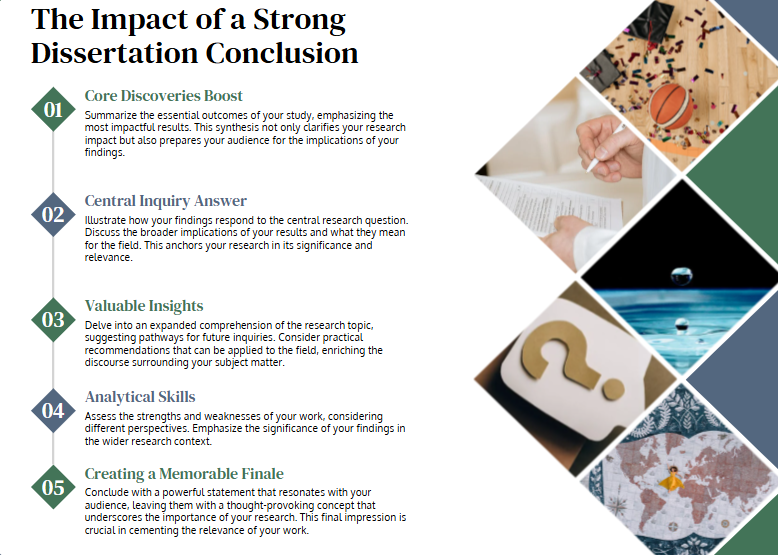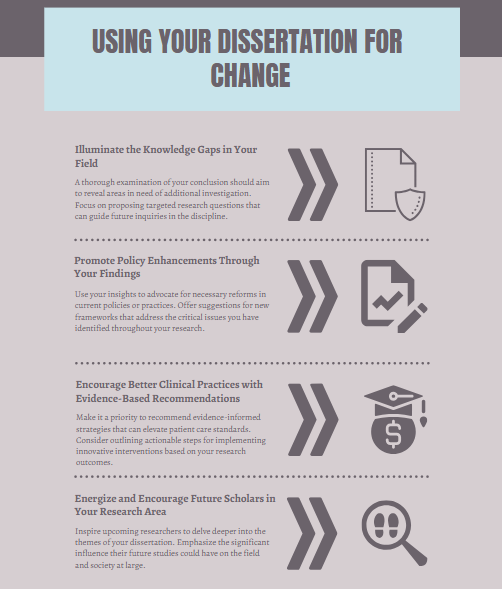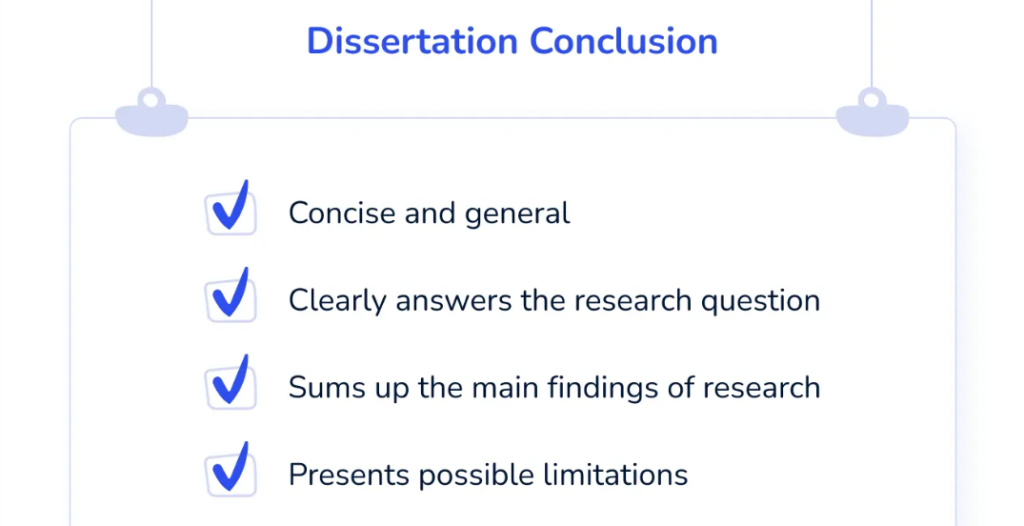
Table of Contents
The nursing dissertation conclusion is the culmination of years of dedicated research, meticulous data analysis, and countless hours of writing. It’s the final opportunity to leave a lasting impression on your readers and demonstrate the significance of your findings within the broader context of nursing knowledge. But crafting a compelling nursing dissertation conclusion is more than simply summarizing your results; it’s about weaving together the threads of your research to answer your central question, highlight the implications of your findings, and pave the way for future investigations.
This article delves into the essential elements of crafting a powerful nursing dissertation conclusion, providing practical advice and examples to help you bring your research journey to a satisfying close.
Why is a Strong Nursing Dissertation Conclusion Important?
A strong nursing dissertation conclusion is crucial for leaving a lasting impact on the reader and showcasing the significance of your research. It’s the final opportunity to reiterate your key findings, solidify your argument, and offer meaningful insights that extend beyond the scope of your study. This section is not merely a summary of your findings but a platform to demonstrate your understanding of the research landscape, its implications for nursing practice, and potential directions for future research.
The nursing dissertation conclusion should encapsulate the essence of your dissertation, providing a succinct and powerful overview of your argument. It should address the research question and objectives, highlighting the major findings and their implications.
A well-crafted nursing dissertation conclusion will leave the reader with a clear understanding of the study’s contribution to the field of nursing. It should not introduce any new information but should instead synthesize the existing information, leaving the reader with a sense of closure and a clear takeaway from your research.
By crafting a strong nursing dissertation conclusion, you demonstrate your ability to analyze data, interpret findings, and draw meaningful conclusions. This section is a reflection of your critical thinking and research abilities, leaving a lasting impression on the reader and solidifying your dissertation’s impact on the field of nursing.

Step-by-Step Guide to Nursing Dissertation Conclusion
1. Reiterate Your Research Question and Thesis Statement
The nursing dissertation conclusion should begin by restating your central research question and your thesis statement. This provides a clear framework for readers to understand the journey your research has taken and the conclusions you have reached. For instance, if your research question was “How does mindfulness-based stress reduction impact anxiety levels in hospitalized patients?” you might start your conclusion with: “This dissertation investigated the impact of mindfulness-based stress reduction on anxiety levels in hospitalized patients.”
2. Summarize Your Key Findings
Your nursing dissertation conclusion should synthesize the key findings of your research, providing a concise and clear overview of your results. Avoid overwhelming your readers with unnecessary details; focus on the most significant findings that support your thesis statement. For example, if your research showed a significant reduction in anxiety levels among patients who participated in mindfulness-based stress reduction, you might state: “The findings demonstrate that mindfulness-based stress reduction interventions significantly reduced anxiety levels in hospitalized patients compared to the control group.”
3. Discuss the Significance of Your Findings
Once you’ve summarized your findings, you must discuss their significance in the broader context of nursing knowledge. Explain how your research contributes to the existing body of literature and how it might inform future research or clinical practice.
4. Address Limitations and Future Research Directions
Every research project has limitations, and it’s important to acknowledge these in your nursing dissertation conclusion. Be transparent about the potential biases, limitations in sample size, or methodological challenges that could have influenced your findings. This demonstrates your critical thinking skills and reinforces your credibility as a researcher. Following this, you can suggest potential areas for future research that can address the limitations of your study and build upon your findings.
5. Connect Your Findings to Nursing Practice
A powerful nursing dissertation conclusion connects your research to its practical implications for nursing practice. Explain how your findings can be used to improve patient care, enhance nursing interventions, or inform policy decisions.
6. Offer a Final Thought or Closing Statement
End your nursing dissertation conclusion with a strong and memorable final thought or closing statement. This can be a call to action, a reflection on the impact of your research, or a statement that leaves readers with a lasting impression.
How to Craft a Powerful Nursing Dissertation Conclusion
1. Reflect on the “So What?” Factor: Before writing your conclusion, ask yourself, “So what?” What are the broader implications of your research? How does it contribute to the existing body of knowledge in nursing?
2. Summarize Key Findings: Start by briefly summarizing your key findings, highlighting the most significant results. Don’t merely reiterate the findings; instead, discuss their relevance and significance.
3. Address Limitations: Be honest about your research’s limitations, but focus on their impact on your findings and potential avenues for future research.
4. Connect to Existing Literature: Discuss how your research builds upon or challenges existing knowledge in the field.
5. Highlight Broader Implications: Discuss the potential applications of your research in clinical practice, policy development, or further research.
6. End with a Strong Call to Action: Consider ending your nursing dissertation conclusion with a call to action, urging readers to apply your findings, conduct further research, or implement changes in practice.
7. Seek Feedback: Before submitting your dissertation, seek feedback from your advisor and peers. They can help you identify any areas for improvement in your nursing dissertation conclusion.

Example of a Strong Nursing Dissertation Conclusion
“This dissertation aimed to investigate the impact of a tailored educational program on the self-efficacy of nurses in managing postoperative pain in adult patients. The findings demonstrate a significant improvement in self-efficacy among nurses who participated in the educational program, suggesting that targeted training can effectively equip nurses with the knowledge and skills needed to provide optimal pain management.
However, the study was limited by a small sample size and geographic focus, necessitating further research to explore the generalizability of these findings to a wider population. Future research should explore the long-term effectiveness of this educational program and its impact on patient outcomes. Overall, this research underscores the importance of ongoing professional development for nurses to enhance their ability to manage postoperative pain effectively and promote positive patient experiences.”
Tips for Writing a Powerful Nursing Dissertation Conclusion:
- Start writing early: Don’t leave your conclusion for the last minute. Begin drafting it as you complete your data analysis and writing your findings.
- Revisit your research question: Keep your research question and thesis statement at the forefront as you write your conclusion.
- Use strong, concise language: Avoid jargon and overly technical language. Write in a clear and engaging style that is accessible to a broad audience.
- Get feedback: Seek feedback from your advisor, peers, or other experts in the field. Their insights can help you refine your conclusion and ensure it is impactful and well-written.
Avoiding Common Pitfalls in Nursing Dissertation Conclusions
The nursing dissertation conclusion is the culmination of months, if not years, of hard work and dedication. It’s your final chance to make a lasting impression on your readers, leaving them with a clear understanding of your research and its significance. However, many students fall prey to common pitfalls that can undermine the impact of their hard work. This section highlights these pitfalls and provides actionable advice on how to avoid them, ensuring your nursing dissertation conclusion leaves a strong and lasting impact.
1. Restating the Introduction:
One of the most common mistakes in a nursing dissertation conclusion is simply restating what was already presented in the introduction. While it’s important to touch upon the core research question and objectives, your conclusion should offer a deeper reflection on the findings, not a mere reiteration. Instead of restating the problem, summarize your key findings and discuss their implications.
2. Introducing New Information:
The nursing dissertation conclusion is not the place to introduce new information or arguments. All relevant points should have been discussed in the preceding chapters. Introducing new material at this stage can confuse the reader and weaken the overall impact of your dissertation.
3. Lack of Clarity and Conciseness:
A clear and concise nursing dissertation conclusion is essential. Readers should walk away with a strong understanding of your research’s key takeaways. Avoid using jargon or overly complex language, and focus on summarizing the most significant findings and their implications.
4. Failing to Address Limitations:
Every research study has limitations, and acknowledging them demonstrates your critical thinking and analytical skills. While acknowledging limitations, it’s important to focus on their impact on the findings and potential avenues for future research. This approach allows you to provide a more nuanced and complete picture of your study’s contribution.
5. Ignoring the Broader Implications:
The nursing dissertation conclusion should not merely be a summary of your findings; it should also highlight their broader implications. How do your findings contribute to the existing body of knowledge in nursing? What are the potential applications of your research in clinical practice or policy development?
6. Missing the “So What?” Factor:
The most impactful nursing dissertation conclusion addresses the “so what?” factor. After reading your conclusion, the reader should understand why your research matters and how it contributes to the larger field of nursing. Avoid ending on a bland note and leave your audience with a clear sense of the value and impact of your work.
7. Lack of a Strong Call to Action:
The conclusion of your nursing dissertation can be a powerful opportunity to advocate for change. If your research reveals a gap in knowledge or a need for improvement in clinical practice, consider using your conclusion to call for further investigation or a change in policy.

Frequently Asked Questions about Nursing Dissertation Conclusions
The journey of crafting a nursing dissertation is a marathon, and the conclusion represents the final sprint. It’s the culmination of countless hours of research, analysis, and writing, and its impact on the overall success of your dissertation cannot be overstated. While the prospect of writing a strong nursing dissertation conclusion might seem daunting, it’s less about overwhelming complexity and more about strategic clarity and impact. This section addresses some frequently asked questions about this crucial section, guiding you through the process of crafting a conclusion that leaves a lasting impression.
1. What is the Purpose of a Nursing Dissertation Conclusion?
The nursing dissertation conclusion isn’t simply a rehashing of your findings. It’s your opportunity to synthesize your research, articulate its significance, and leave a lasting impact on your readers. Think of it as the final argument for your thesis, where you tie together all the threads of your research and demonstrate its value within the broader nursing field.
2. How Long Should My Nursing Dissertation Conclusion Be?
There’s no one-size-fits-all answer, but generally, a nursing dissertation conclusion should be about 5-10% of your overall word count. It’s a concise, yet powerful summary of your research journey.
3. What Should I Include in My Nursing Dissertation Conclusion?
A well-structured nursing dissertation conclusion should:
- Reiterate your research question and thesis statement: Briefly remind the reader of the central question guiding your research and restate your thesis statement.
- Summarize your key findings: Highlight the most significant results of your study, emphasizing their relevance to the research question.
- Discuss the implications of your findings: Explain the broader significance of your research, highlighting its contributions to the field of nursing and its potential impact on practice, policy, or future research.
- Address limitations and future directions: Acknowledge any limitations of your study and propose potential avenues for future research based on your findings.
4. How Can I Ensure My Nursing Dissertation Conclusion is Impactful?
Creating an impactful nursing dissertation conclusion requires a strategic approach:
- Avoid new information: Don’t introduce new data or arguments in your conclusion. Focus on summarizing and interpreting what you’ve already presented.
- Use a clear and concise writing style: Avoid jargon and technical language. Aim for clear, concise sentences that effectively communicate your key points.
- End on a strong note: Leave your readers with a lasting impression by highlighting the significance of your research and its potential impact on nursing practice or policy.
5. How Can I Make My Nursing Dissertation Conclusion Stand Out?
Here are some tips for creating a memorable nursing dissertation conclusion:
- Connect your findings to real-world applications: Illustrate how your research can translate into tangible improvements in patient care, nursing practice, or healthcare policy.
- Offer a call to action: Encourage your readers to engage with your research and contribute to the ongoing dialogue within the nursing field.
- Leave a lasting thought-provoking question: End with a question that stimulates further reflection and encourages your readers to consider the implications of your findings.
6. What are Some Common Mistakes to Avoid in a Nursing Dissertation Conclusion?
- Overly lengthy or repetitive: Keep your conclusion concise and focused. Avoid repeating information already presented in the main body of your dissertation.
- Introducing new information: The conclusion is not the place to present new findings or arguments.
- Lack of clarity or coherence: Ensure your conclusion is well-organized and clearly connects to the rest of your dissertation.
7. How Can I Get Feedback on My Nursing Dissertation Conclusion?
Seek feedback from your advisor, peers, or other experts in the field. Having fresh eyes review your nursing dissertation conclusion can help you identify areas for improvement and ensure your message is clear and impactful.
8. Can I Include Personal Reflections in My Nursing Dissertation Conclusion?
While personal reflections can add a layer of authenticity to your writing, they should be kept to a minimum in a nursing dissertation conclusion. Your primary focus should be on presenting objective research findings and their implications.
9. How Can I Write a Concise, Yet Impactful, Nursing Dissertation Conclusion?
A concise nursing dissertation conclusion can be achieved by:
- Focusing on the most significant findings: Highlight only the most critical results and their implications.
- Using concise language: Employ clear, succinct sentences that effectively convey your key points.
- Avoiding unnecessary details: Don’t dwell on minor details or elaborate on every finding.
10. What are Some Examples of Strong Nursing Dissertation Conclusions?
Examining strong nursing dissertation conclusions from other studies can provide valuable insights and inspiration. Seek out dissertations in your area of interest and analyze how they effectively synthesize findings, discuss implications, and leave a lasting impression.

The Bottom Line
The nursing dissertation conclusion is your final opportunity to showcase the significance of your research and leave a lasting impression on your readers. By following the guidelines outlined above, you can craft a conclusion that not only summarizes your findings but also highlights their impact on the field of nursing, propelling your research towards future applications and advancements. Remember, a strong nursing dissertation conclusion is not just about the end of your dissertation journey; it’s about the beginning of a meaningful contribution to the nursing community.
Writing a strong nursing dissertation conclusion takes time, careful planning, and reflection. Approach this final chapter of your research with the same dedication and rigor you brought to every other aspect of your journey. The strength of your conclusion will reflect the strength of your entire dissertation.
Get Professional Nursing Dissertation Writing Service
At PhD Nurse Writer, we offer professional dissertation writing services for graduate, Master’s and PhD. Besides dissertation writing, we can help you with topic suggestion, proofreading, editing, formatting and plagiarism removal. Our writing services also extend to essays, research papers and case studies. Get in touch with us today for professional dissertation writing assistance.





